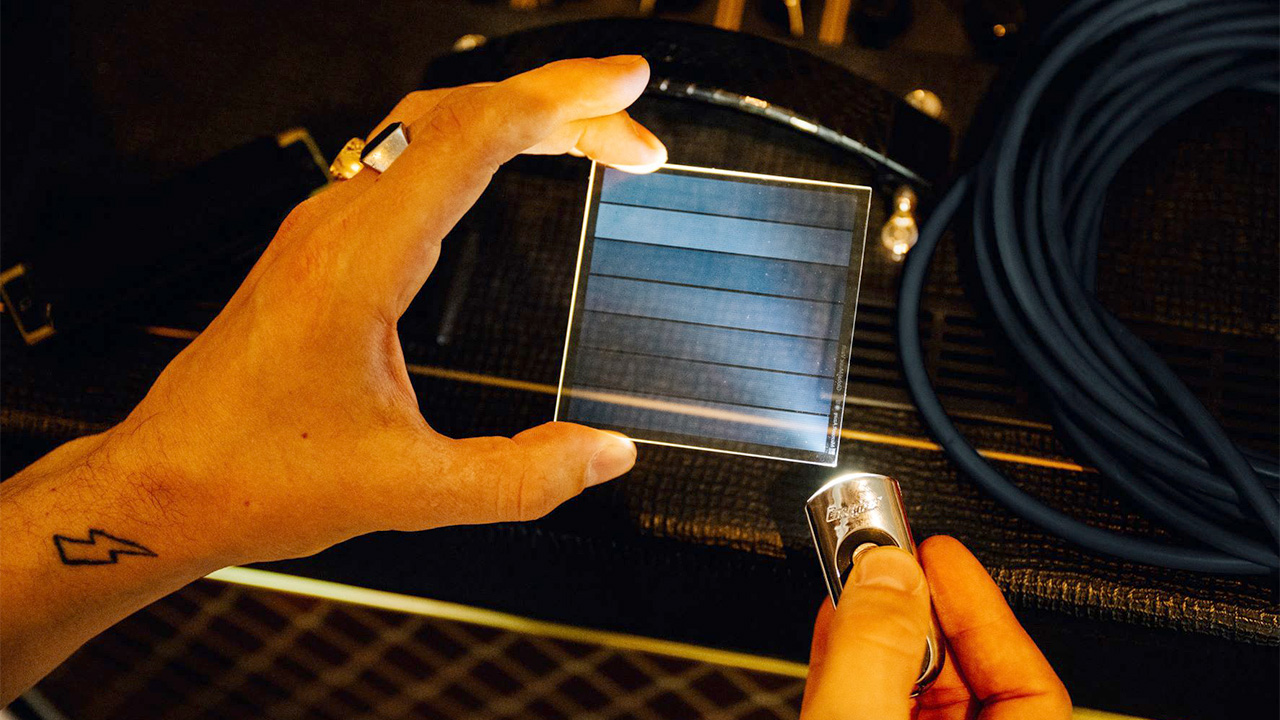Microsoft Lasers Music into Glass for 1000 Years of Storage
That avant-garde album of whale song, back-masked beat poetry and solo trombone you recorded a few years ago can now be preserved for the entertainment and general bemusement of future generations of humans (or, perhaps, aliens). The long-term data storage experiment comes to us courtesy of Project Silica, a collaboration between Microsoft and the Norwegian government.

Known as the Global Music Vault, the idea is to preserve our culture for the future, just in case something apocalyptic happens or everyone wakes up one day having forgotten how to whistle. With a lofty aim like that, regular CDs or flash drives full of MP3s won't cut it. Instead, it needs to use something for storage that won't degrade over hundreds, or even thousands, of years. And to do this, the project has turned to Microsoft's Project Silica, which stores data in glass platters with a potential lifespan of many thousands of years.
The music vault is a parallel project to the Global Seed Vault, which keeps the seeds of today's trees and plants safe for the future, just in case we need to rebuild agriculture for any reason. The vault is located on the island of Spitsbergen, Norwegian territory, within the Arctic circle. It lacks tectonic activity, is permanently frozen, is high enough above sea level to stay dry even if the polar caps melt, and even if the worst happens, it won't thaw out fully for 200 years. Just to be on the safe side, the main vault is built 120m into a sandstone mountain, and its security systems are said to be robust. As of June 2021, the seed vault had conserved 1,081,026 different crop samples.
The music is to be stored in a dedicated vault in the same mountain used by the seed vault. The glass used is an inert material, shaped into platters 75mm (3 inches) across and 2mm (less than 1/8th of an inch) thick. A laser encodes data in the glass by creating layers of three-dimensional nanoscale gratings and deformations. Machine learning algorithms read the data back by decoding images and patterns created as polarized light shines through the glass. The silica glass platters are fully resistant to electromagnetic pulses and the most challenging of environmental conditions. It can be baked, boiled, scoured and flooded without degradation of the data written into the glass. Tests to see if it really does last many thousands of years, however, can be assumed to be ongoing.
Jurgen Willis, Vice President of Program Management at Microsoft, said, "In this proof of concept, Microsoft and Elire Group worked together to demonstrate how Project Silica can help achieve the goal of preserving and safeguarding the world's most valuable music for posterity, on a medium that will stand the test of time, using innovative archival storage in glass."
Of course, having a music vault is one thing, but deciding what to keep is also important. The Global Music Vault has therefore commenced Project ARV, which looks to gather musical expressions from across the world for celebration and safeguarding. So ready your trombones, people! We honk into infinity.
Get Tom's Hardware's best news and in-depth reviews, straight to your inbox.

Ian Evenden is a UK-based news writer for Tom’s Hardware US. He’ll write about anything, but stories about Raspberry Pi and DIY robots seem to find their way to him.
-
hannibal Also have to have instruction how to get sound out of these is civilization collapse...Reply
Not an easy task. -
This is nice except it in 1000 years there probably won’t be any equipment to read itReply
The way things are going I don’t expect the earth to be inhabited in 1000 years -
mdd1963 At least we are prioritizing on saving what is of the utmost importance in case of a global catastrophe!Reply
Our ....music....
(I submit that future generations first prioritize on realizing the past had some truly great vocal talent...like Yoko Ono!)
:/